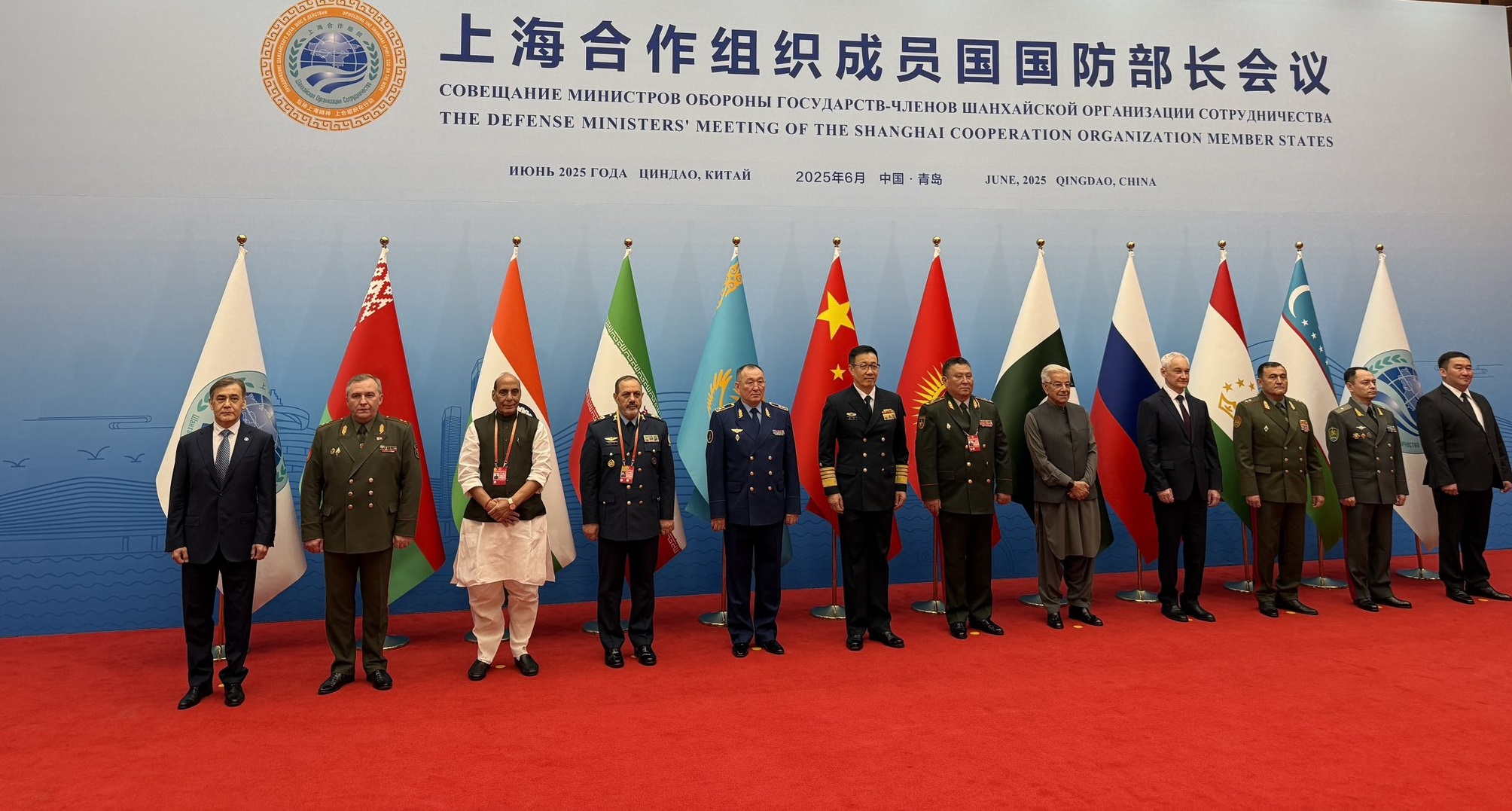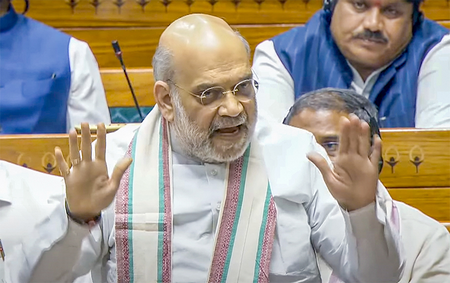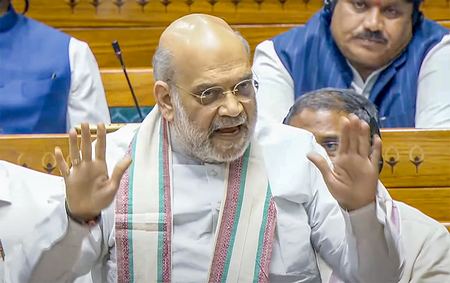
Qingdao (China), June 26 (H.S.): Defence Minister Rajnath Singh, on Thursday , outlined India’s approach to combating terrorism at the SCO Defence Ministers’ Meeting in Qingdao, China. He emphasized the urgent need for member countries to collaborate in addressing terrorism, radicalization, and the related security challenges threatening peace and trust in the region. He condemned terrorism and stated that nations using cross-border terrorism as a policy must face accountability, insisting that double standards in this regard should not be tolerated.
Highlighting India’s Operation Sindoor, launched in the aftermath of a terrorist attack in Jammu & Kashmir, he reiterated India’s right to defend against terrorism and deter further attacks. He pointed out the targeting pattern of the attack, linking it to the terrorist group Lashkar-e-Taiba and asserting India’s zero tolerance for terrorism, signaling a commitment to confront the epicenters of terrorism.
Rajnath Singh stressed the importance of holding those responsible for financing and organizing terrorism accountable and condemned all acts of terrorism as unjustifiable. He urged SCO members to unequivocally condemn acts of terrorism and reaffirmed India’s commitment to combating terrorism in all forms. He called for proactive measures to prevent radicalization among youth and underscored the significance of the RATS mechanism in addressing these issues.
He further emphasized the need to counter technology used by terrorists, such as drones for smuggling, noting that traditional borders are ineffective against global threats. Recognizing the interconnectedness of contemporary threats, he argued for a unified response based on transparency and collaboration.
Rajnath Singh portrayed the SCO’s vital role in enhancing geopolitical stability, highlighting its economic significance due to member countries contributing a substantial portion of global GDP and population. He addressed the challenges posed by globalization’s decline and multilateralism’s weakening in addressing urgent global issues. He advocated for reformed multilateralism to foster cooperation and dialogue to prevent conflicts.
He expressed India’s commitment to boosting connectivity with Central Asia, asserting that this promotes mutual trust and trade while respecting the sovereignty of member states. He reaffirmed India’s consistent support for peace and stability in Afghanistan, focusing on humanitarian assistance and capacity-building initiatives.
Moreover, Rajnath Singh discussed non-traditional security challenges such as pandemics and climate change, asserting that these necessitate collaborative international policies. He highlighted India’s initiatives like the Coalition for Disaster Resilient Infrastructure as a model for global cooperation in disaster management.
Finally, he articulated India’s vision of SAGAR and MAHASAGAR for regional growth, advocating for collective efforts to meet people’s aspirations while addressing current global challenges. He concluded with a call for consensus based on the principle of One Earth, One Family, One Future, reflecting India’s civilizational ethos.
Hindusthan Samachar / Jun Sarkar




